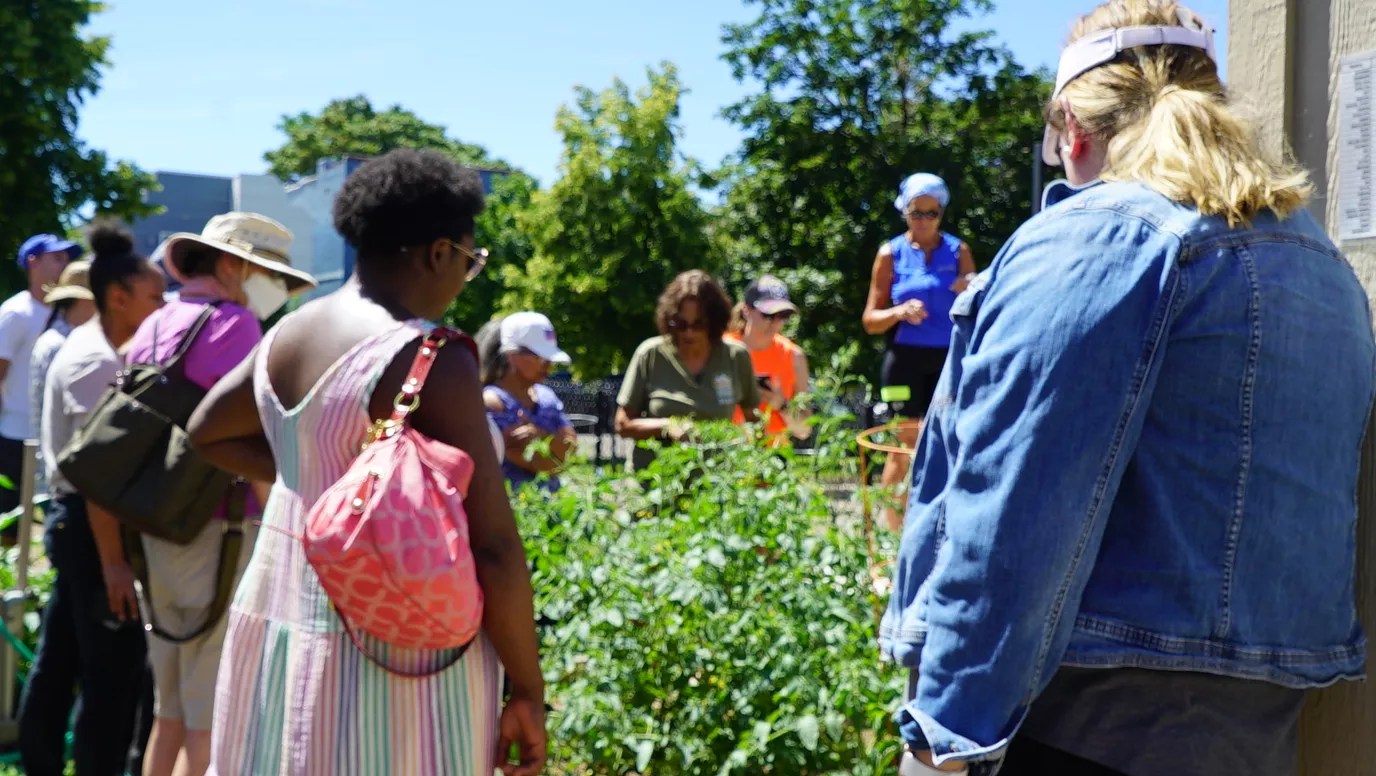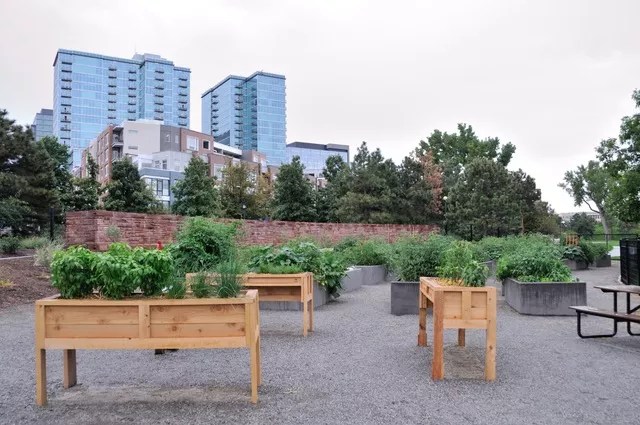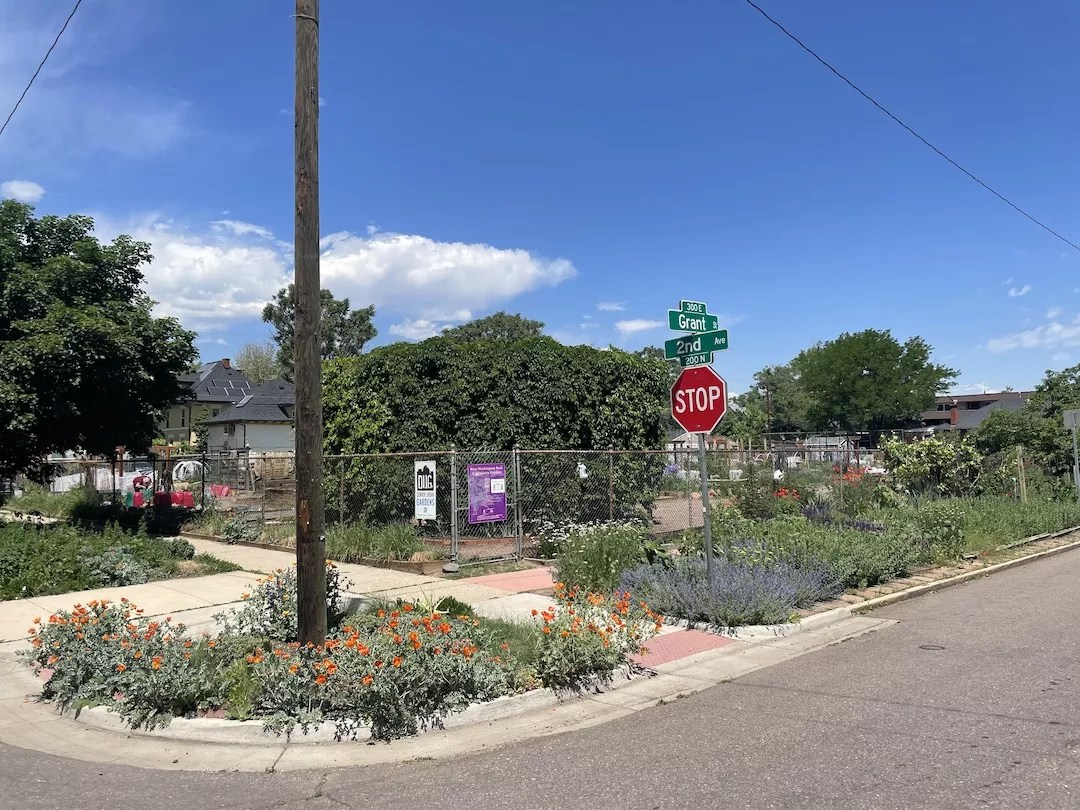
Denver Urban Gardens

Audio By Carbonatix
You can find them in almost every neighborhood – a pop of green among the city buildings where people gather to plant, weed and chat inside fenced-off gardens. With close to 200 community and school-based gardens, Denver Urban Gardens (DUG) is the largest independent network of food-producing gardens in the country, and it continues to grow with its newest initiative: food forests.
“Urban gardens are critical parts of infrastructure for thriving cities,” says CEO Linda Appel Lipsius, who has been working with the nonprofit for over three years. “They are very cost-efficient, and the return on investment across food, soil health, climate, community and access to healthy food is so simple, yet incredibly powerful and transformational.”
DUG has been around for over 45 years, and during that time, it has adapted its programs, garden styles and workforce to keep up with the changing world. From volunteer-tended community gardens and plots to soil regeneration, cultivating connections with communities, educational programs and much more, the team is redefining what it means to eat and thrive in a city.
Lipsius, who graduated from Columbia University and the Stern School of Business at NYU, is also the founder of Teatulia. She joined DUG in July 2020 and has helped it navigate through some challenging times, including the sale of two-thirds of El Oasis, one of its Highland properties, in late 2020 to pay off $500,000 in debt.

One of DUG’s many urban gardens.
Denver Urban Gardens
Last year, the organization launched its latest innovation in urban gardening: food forests, or areas where trees, bushes and shrubs that all produce some type of fruit or nut are planted. In addition to producing food, they also aid in pollination and create tree canopies. The fruits of this initiative don’t stop there, either: With more trees being planted across the city, air quality and biodiversity are supported, too.
“Right now, I believe we are the only ones in Denver planting fruit trees,” says Lipsius. “Normally, everything in our gardens is very much rinse and repeat, a sort of annual planting. The food forests are legacy projects. They will start producing fruit in a few years and theoretically be around for thirty to forty years after that.”
She continues, “With community gardening, it’s normally people gardening for their own family, but with food forests, they are true community orchards – open access.” In its first year of the initiative, DUG planted six food forests, with plans to add twenty more in 2023. Currently, it’s looking for more public or private land for potential future sites.
DUG also has a program where food businesses like Illegal Pete’s, one of its current active members, can adopt gardens in the neighborhoods where they have locations. Staff and other volunteers care for the plants and are then able to use them in their kitchens, which not only cuts back on food waste, but also allows employees to give back to their community while fostering connections between each other.

With nearly 200 gardens, DUG is “part of the fabric of Denver,” Linda Appel Lipsius says.
Linda Appel Lipsius
Creating connections is a big part of DUG’s mission overall. “During COVID, we had so many people telling us that these gardens saved their lives. It’s a way to get out and come together as a community to take agency over their lives,” says Lipsius. “The beauty of this work? Everyone does it. It’s beneficial for everyone from any background. That’s the glorious thing about DUG: It is a sort of common humanity. We come together over food and our connection to the earth.”
On September 23, the organization will host its signature fundraiser, the Gather ‘Round Gala, at ReelWorks. Guests will enjoy plant-based fare from the Easy Vegan, which recently won The Great Food Truck Race, as well as live music, dancing, a silent auction and more. Tickets start at $150 and are available online.
For more information about Denver Urban Gardens, including how to start a plot, volunteer opportunities and upcoming classes and events, visit dug.org.